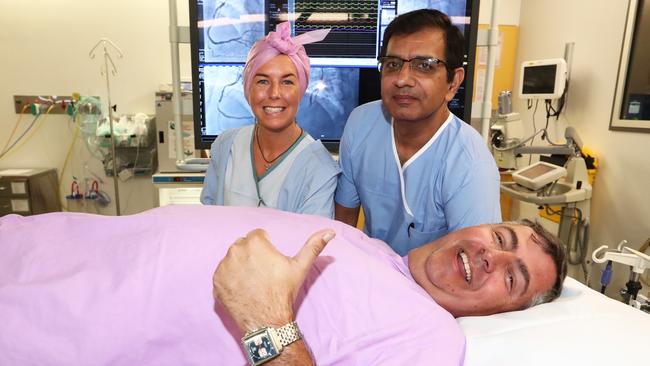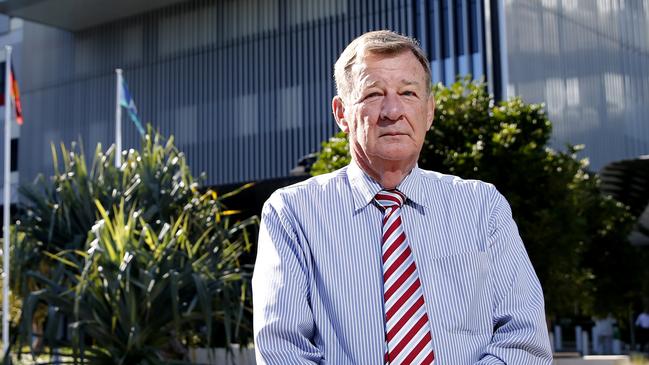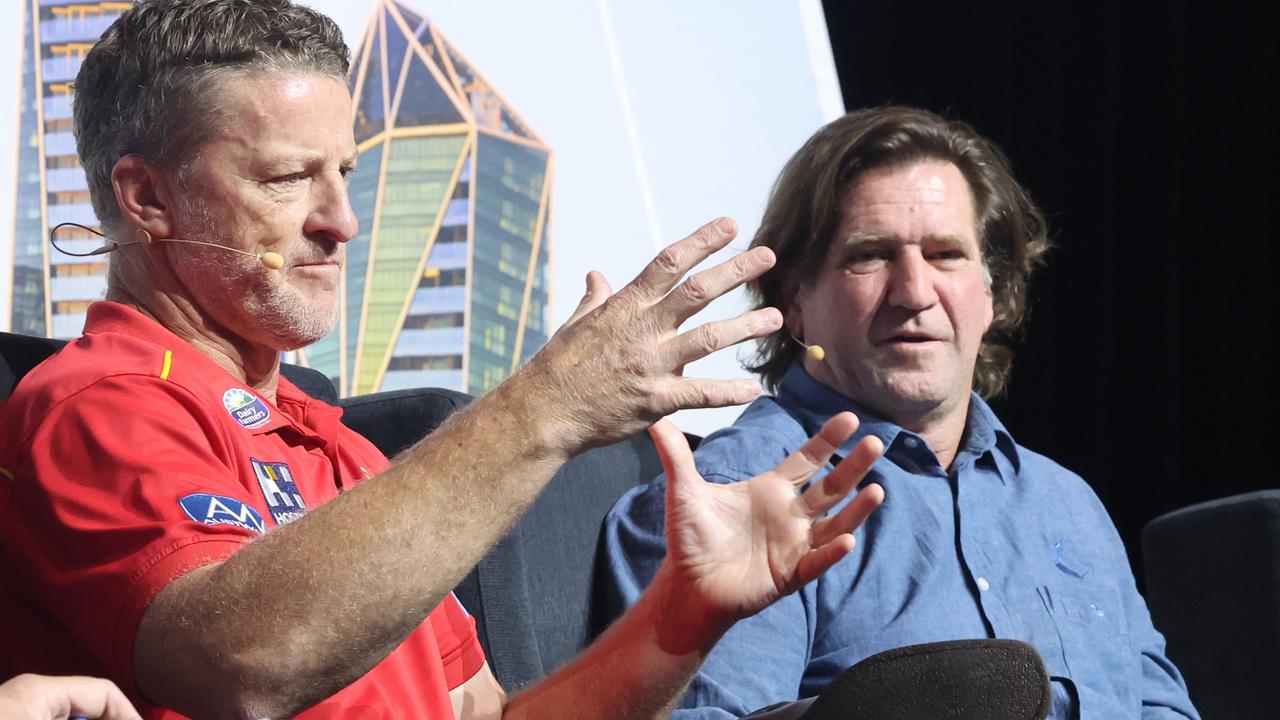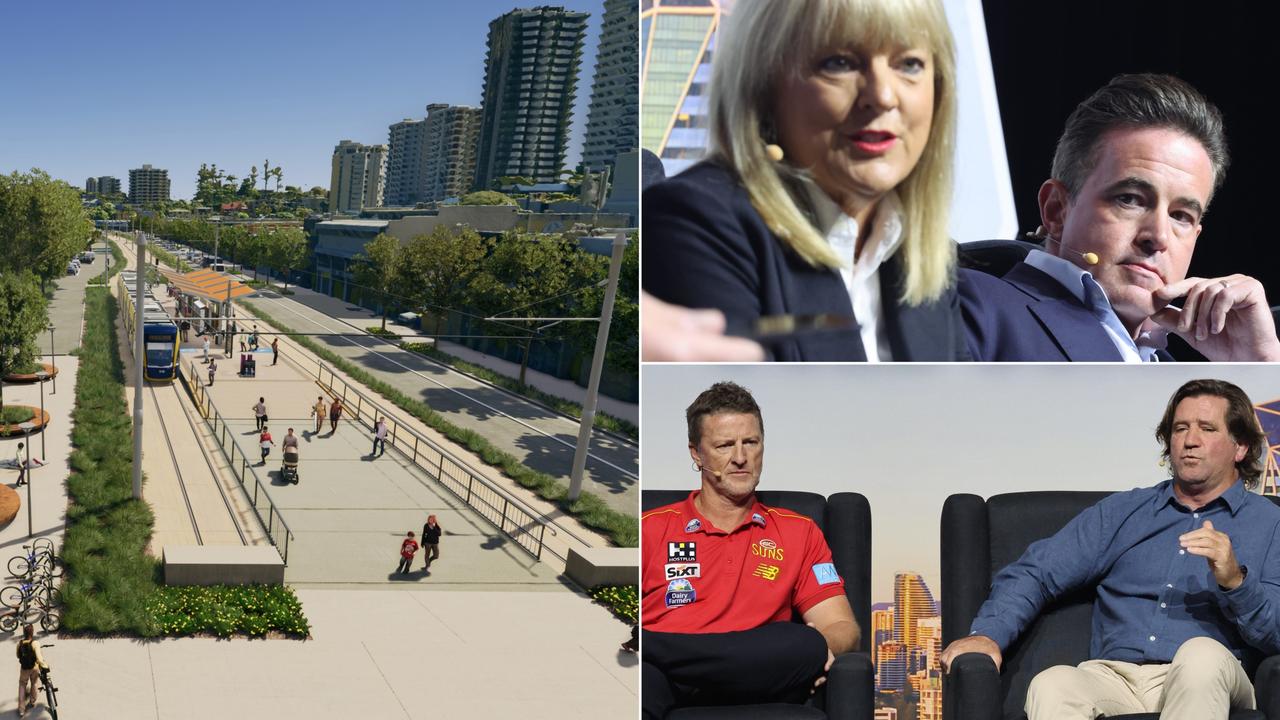Home care trumps Gold Coast hospital visits, according to medical leaders
The future of health is not in the hospital but at home, according to the Gold Coast’s medical leaders. And it could be a lifesaver for a city with an ageing population and bed shortages.

Future Gold Coast
Don't miss out on the headlines from Future Gold Coast. Followed categories will be added to My News.
THE future of health is not in the hospital but at home, according to the Gold Coast’s medical leaders.
Facing an ageing population, a numbers boom in the north of the city, bed shortages and record emergency arrivals, the pressure on local hospitals is close to crisis point.
But for Ian Langdon, chair of the Gold Coast Hospital and Health Services, the solution to health in the next decade is about mobility.
“We have moved from what was a pretty good regional health service to a tertiary health service in just a few years,” Mr Langdon told the Bulletin.
GOLD COAST RAMPING STRESS AT GOLD COAST HOSPITALS

AMAZING OFFER: GET A SAMSUNG GALAXY TAB A 8.0 WITH THIS BULLETIN SUBSCRIPTION (T&Cs apply)
“People used to go to Brisbane for cardiac surgery, major trauma. Now we are taking all that and births down to 25 weeks where they would previously have been taken up to Brisbane — the progress is huge.”
RELATED NEWS:
Second M1 a ‘silver bullet’ to beat motorway gridlock
Where seven new Coast railways stations will be built
Incredible predictions for Coast’s future
Since 2012, the health service budget has doubled from $800 million to $1.6 billion.
The hospital’s birthing average has gone from 3000 to 5000 and the public emergency wards are hitting nearly 500 presentations a day.
Last month the health service reached a major milestone, completing its 2500th lifesaving blood catheter cardiac procedure.
To keep up with demand, Mr Langdon said the service was working to expand further into the northern corridor — and into the homes of patients.
THE FRONTLINE OF THE GOLD COAST’S EMERGENCY OVERLOAD

“By 2030 we expect the growth on the Gold Coast alone to be equivalent to the size of Townsville today. In the medium term the focus is on new models of care,” he said.
OTHER NEWS:
Emotional MP: ‘I’ll tell you about scared’
Coast shopping centre sells for $30.81m
Cops identify body found on Gold Coast beach
“Health in the future is not so much on building new facilities, it’s about staff providing care in the most beneficial way possible through things like community clinics and home visits.
“It is an increasing trend throughout Queensland but I believe we would be among the very best at doing that with 180,000 home visits a year — a staggering amount. Midwives alone (are) over 10,000 annually.”
The health service also provides home visits for 300 palliative care patients and mental health patients.
Children with cystic fibrosis who previously would be in hospital for two to three weeks now stay at home where they are treated and able to continue going to school.
WHAT IS NEXT FOR THE GOLD COAST’S $1.7 BILLION INDUSTRY

“Keeping people where they are comfortable yields better results. The healthiest place on the Gold Coast is always outside of the hospital — they are full of sick people,” Mr Langdon said.
“If you can keep people at home they are in generally a better environment, spirits are up, they are not as isolated and mentally they are in a far better position.”
Mr Langdon said hospital should be reserved as much as possible for those in need to life saving emergency care.
“It isn’t a move to force people out of the hospital. Patients actually want it. You can see the sigh of relief when they are told they don't need to be in hospital for weeks.”
He predicted technology would be a major factor with hospital-wide digital databases and as clinicians adapted to using algorithms to help diagnose.

Associate Professor Sally Sargent, who is deputy head of Southern Cross University’s School of Health and Human Sciences, said nursing students were already preparing to work alongside the new technology.
“In health generally on the Gold Coast the biggest developments we would see are in digital health and artificial intelligence,” Professor Sargent said.
“People shouldn't be scared and think it’s going to take health care jobs away. Instead it is going to help at an accuracy and technical level.
“As a training provider we are shifting to educating students in artificial intelligence through their medical studies, and to embrace digital health.”
Professor Sargent agreed the future of health was in preventive care.
“Health isn’t about a doctor and patients any more, it is about a team of people from a dietitian to a psychologist,” she said.
“It is about promoting health before needing to treat sickness.”


